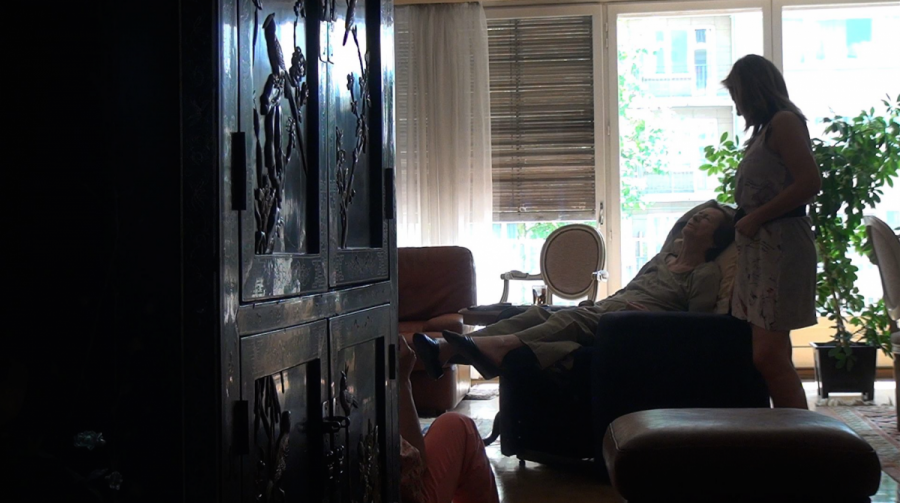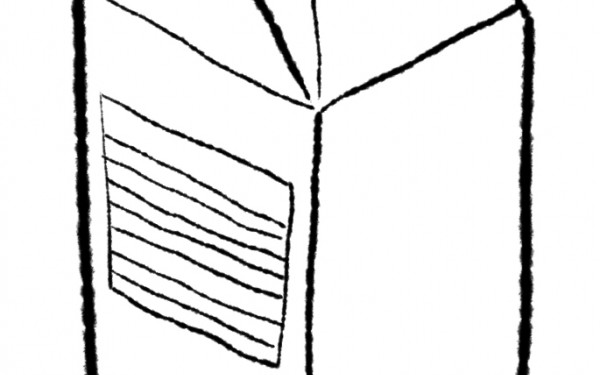In Memory of Chantal Akerman
RIDM Pays Tribute to Belgian Filmmaker
In light of the tragic death of Belgian filmmaker Chantal Akerman, the Montreal’s international documentary festival will pay tribute to the exceptional figure of the cinema community. Reknowned worldwide as the author of original and audacious films, Akerman reportedly committed suicide on Oct. 5 at the age of 65.
“Many important filmmakers of today, such as Gus Van Sant, Todd Haynes or Michael Haneke, regard Chantal Ackerman as a key influence on their work, not only through her idiosyncratic approach to form, but in her profoundly personal engagement with her subjects,” said Charlotte Selb, who is the artistic director of Rencontres Internationales du Documentaire de Montréal.
Selb, a Concordia film studies graduate, emphasized Akerman as a major cinematic voice for women. Her body of work investigated time and space, identities and human relations, sexuality and religion, all from feminist perspectives.
Fiercely independent, working within an intimate, loyal circle of cast and crew, Akerman projected the depths of her spirit, and that of her characters, in their naked truth.
Her final film, No Home Movie, presented in the official competition at the Locarno Festival this summer, will be screened at this November’s RIDM, as will a portrait of the director, I Don’t Belong Anywhere—The Cinema of Chantal Akerman, directed by Marianne Lambert, who will be in attendance for the film’s North American premiere. These two films were originally planned for screening before the news of Akerman’s death.
Early features, such as Hôtel Monterey (1972) and The Room (1972)—for which the 20-year-old had carefully saved money from her job as a cashier in a gay porn theatre—signaled her rigorously minimalist aesthetic approach and complete independence from mainstream film philosophies.
Influenced by the structuralist works of experimental directors Michael Snow, Stan Brakhage and Jonas Mekas whom she discovered in New York, her work became closely tied to meditations on duration. She does so through the use of long takes, in which objects veer to abstraction.
The period also marks the start of her collaboration with Babette Mangolte, the director of photography for most of her subsequent films. Famously, Akerman was determined to make movies at the age of 15, the night after having seen Jean-Luc Godard’s Pierrot le Fou (1965).
Charlotte Selb highlights No Home Movie as particularly heartrending. It captures the waning moments of the director’s mother’s life and her “mixed feelings of tenderness and malaise” toward her.
Filming the old woman in her Brussels apartment and through a Skype window, Akerman examines the mother figure that has haunted her work throughout her life.
The film echoes Akerman’s 1977 short film News from Home; composed of static shots of glimmering, run-down New York City streets—to which she had moved from Brussels with close to nothing. Her own voice is heard reading letters sent between her and her mother, a Holocaust survivor whose life of monotonous domestic confinement provided inspiration for Akerman’s landmark film Jeanne Dielman, 23, quai du commerce, 1080 Bruxelles (1975).
Jeanne Dielman won international acclaim as a momentous feminist masterpiece of a daring minimalism, in which the repetitive activities of an isolated housewife are meticulously, hypnotically deployed for the camera, building second by second, frame by frame, the existential vacuousness of a life prescribed by a paternalistic society. The film is a penetrating study of domestic confinement, which ultimately forces a woman to violent exertion.
In a genuinely “auteurist” fashion, her sensibility is rendered in its sincere entirety and nakedness, through real-time observations of her characters’ physical and mental wanderings, in each and every one of her films.
Her 1978 film The Meetings of Anna is one of her most penetrating character study. Anna, an accomplished filmmaker (played by Aurore Clément, one of her very close friends and collaborators), makes her way through a series of European cities to promote her latest movie.
Via a succession of eerie, exquisitely shot, brief encounters—with men and women, family and strangers—we come to see her emotional and physical detachment from the world.
This sense of personal estrangement surfaces in many of her films, including those in which she features herself, such as her 1968 feature debut, Blow Up My Town. To make this short film, Akerman subsidized the film’s costs by trading diamond shares on the Antwerp stock exchange. Here, she frames herself alone in long shots, in a closet-sized kitchen, attempting to perform the domestic activities expected from women. But instead, she makes an enormous mess and, finding nothing to do, suffocates herself to death by leaving the stove on.
Festival-goers will also have the chance to rediscover Akerman’s From the Other Side, her 2002 documentary about Mexican migrants trying to reach the United States.
This film was added to the original selection, in the aims of representing Akerman’s contribution to the realm of social documentary. The film is part of a tetralogy of travelogues, which took her to post-Communist Eastern Europe in From the East (1993), the American South in South (1999) and Israel in Down There (2006).
Akerman sought to give expression to marginal inner lives, to the thoughts and feelings of immigrants and racial minorities from around the world.
“As one of the most dedicated independent filmmakers, Chantal Akerman never stopped working,” said Selb, “having made around 40 films—experimental, documentary and fiction, as well as solo museum installations based on some of her films.”
RIDM’s selection will not be exhaustive and aims simply to pay homage to a woman who will be deeply regretted. The Cinémathèque Québécoise will curate a retrospective of her work in January 2016.


_600_832_s.png)

_600_375_90_s_c1.jpg)
_600_375_90_s_c1.jpg)
_600_375_90_s_c1.jpg)
